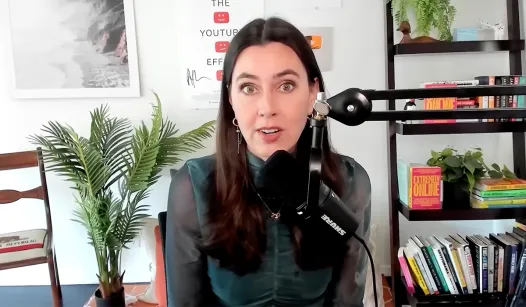In today’s digital landscape, a complex and often unseen network of online influencers plays a significant role in shaping political narratives. Taylor Lorenz, a prominent journalist known for her keen insights into social media and its impact on society, has shed light on the intricate workings of this hidden world—especially as it pertains to the left’s strategic use of paid influencers.
As political discourse increasingly shifts to online platforms, understanding the mechanisms behind these influencers becomes crucial for anyone interested in contemporary politics. The influence of social media cannot be overstated; it has transformed the way information is disseminated, opinions are formed, and campaigns are run. What many may not realize is that a substantial portion of this online engagement is orchestrated through financial incentives.
Lorenz’s research reveals that many influencers—individuals who command significant followings on platforms like Instagram, Twitter, and TikTok—are often compensated for promoting specific political agendas or candidates. This practice raises important questions about authenticity, transparency, and the ethical implications of paid endorsements in politics.
One of the most striking aspects of Lorenz’s findings is the sheer scale of this phenomenon. Influencers are not just casual commentators; they are often part of organized campaigns aimed at mobilizing voters, shaping public opinion, and even countering misinformation. The left has adeptly harnessed this strategy, employing influencers to reach younger audiences who may be disengaged from traditional political channels.
The effectiveness of these paid influencers lies in their ability to create relatable and engaging content that resonates with their followers. Unlike conventional advertisements, which can feel impersonal and overtly promotional, influencer marketing leverages the personal connection that these individuals have with their audience. When a trusted figure shares a political message, it often feels more like a conversation than a campaign pitch, which can lead to higher levels of engagement and persuasion.
Moreover, the rise of influencer culture has coincided with a growing skepticism towards traditional media outlets. Many young voters are more likely to trust information that comes from influencers they admire rather than established news sources. This shift has prompted political organizations to invest heavily in influencer partnerships, recognizing their potential to sway public opinion and drive voter turnout.
However, this trend is not without its criticisms. The use of paid influencers raises ethical concerns about the transparency of political messaging. When influencers promote a political agenda without disclosing their financial ties, it can create a misleading narrative about grassroots support. Audiences may believe they are engaging with authentic voices, unaware that these endorsements are part of a larger, paid strategy.
Additionally, the reliance on influencers can lead to a homogenization of political discourse. As organizations seek to align with popular influencers, there is a risk that diverse viewpoints may be overshadowed in favor of a more palatable, mainstream message. This can stifle meaningful debate and reduce the richness of political dialogue.
For individuals seeking to navigate this new landscape, it is essential to approach online content critically. Understanding the motivations behind influencer endorsements can empower voters to make informed decisions. It’s important to question the authenticity of the messages being shared and consider the broader context in which they are presented.
In conclusion, Taylor Lorenz’s exploration of the left’s use of paid online influencers highlights a significant shift in the political landscape. As social media continues to evolve, so too will the strategies employed by political organizations to engage with voters. For those interested in politics, staying informed about these trends is crucial. By recognizing the power dynamics at play in the world of online influence, individuals can better navigate the complexities of modern political discourse and make choices that align with their values.
